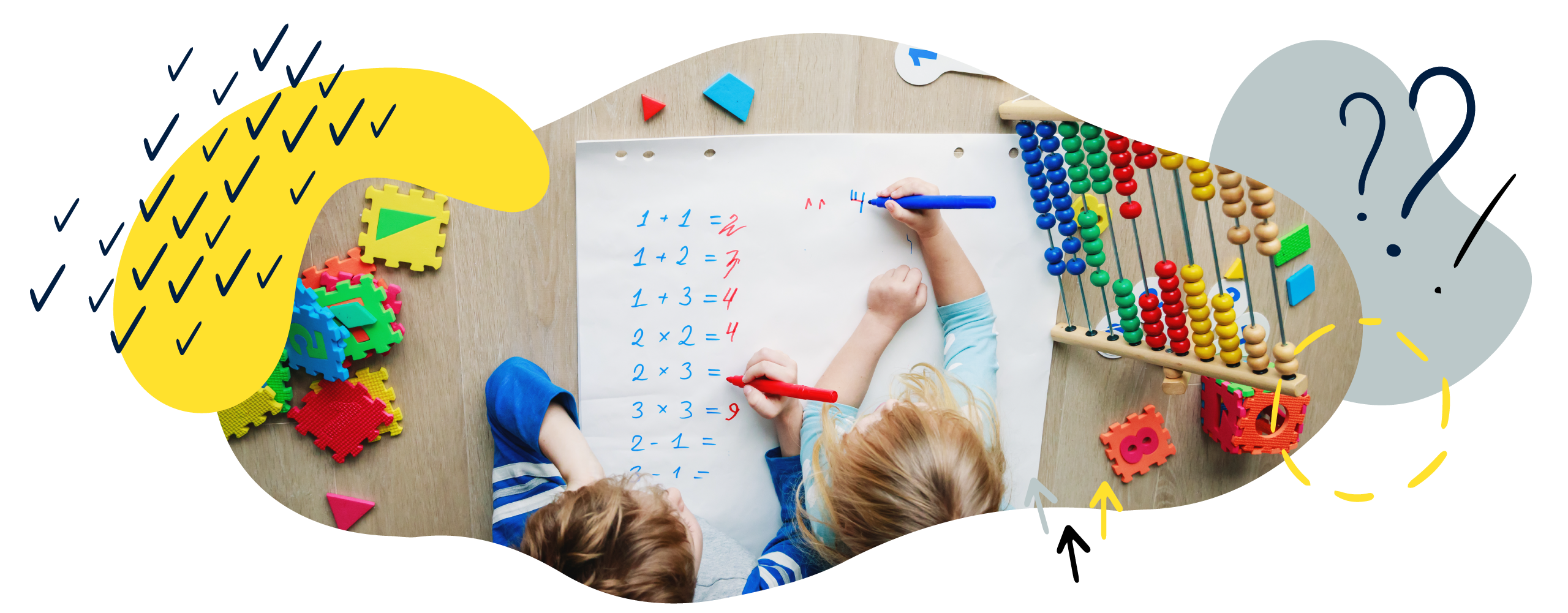Maths: Age 4–5 (Reception)
In Reception, your child will be introduced to numbers and counting, and will start to use basic mathematical language. An interest in maths and problem solving will be encouraged through maths games and fun activities.
Much of your child’s learning will come from exploring and talking about maths in the world around them and there are simple things you can do at home to support their development.
How to help at home
You don’t need to be an expert to support your child with maths! Here are three simple but effective learning ideas that you can try with your child using everyday items at home.
1. Building with bricks
Building things with bricks is a good way of developing maths skills through solving problems. For example:
How many red bricks are there?
How many blue bricks are there?
How many are there altogether?
Using blocks will also help your child practise using the language of maths. For example:
Hmm, I wonder which is the longest brick?
Could you pass me the cube over there?
2. Talk about time
Talking about the time at which different things happen and looking at the clock together during the day is a great way to learn about time. This will help set the foundation for telling the time in later years.
For more advice, see our page on Learning to tell the time.
3. Count everything!
One of the first number skills your child will learn is counting. Practising counting will help them will all sorts of number problems that they will encounter as they get older.
Try to get into the habit of counting when you are out and about. For example:
How many buses have we seen?
How many bugs are in the garden?
How many lamp posts are on the street?
How many squirrels have we seen?
For more games and activities to help your child with maths in the Early Years, take a look at our Fun learning ideas for four-year-olds.
4. Spot patterns
Look for repeating patterns on curtains, wallpaper, or clothing. Ask your child:
Can you see a pattern? Tell me about it. What will come next?
Start patterns with blocks, beads, playing cards, and toys. Encourage your child to build on the pattern to make it longer. You could also look for patterns in time together (for example, seasons, months, or daily routines) and talk about what you notice, or listen for patterns in songs and clap the rhythm.
5. Practise forming numerals
Help your child to learn the numerals by exploring their shapes. You could have fun forming numbers in sand with a stick, or making numbers out of modelling clay. Write numbers for your child to copy, and hold your hand over their hand to help direct them.
Try holding their finger and forming the number in the air. Once they can trace out the shape of numerals, see if they can write numbers on their own.
Video playlist: Early maths skills
What your child will learn in Reception
In Reception, your child will learn to:
-
- Count reliably with numbers from 1 to 20, place them in order and say which number is one more or one less than a given number.
- Use quantities and objects to add and subtract 2 single-digit numbers and count on or back to find the answer.
- Use everyday language to talk about size, weight, capacity, position, distance, time, and money to compare quantities and objects and to solve problems.
- Recognise, create, and describe patterns.
- Explore characteristics of everyday objects and shapes and use mathematical language to describe them.
